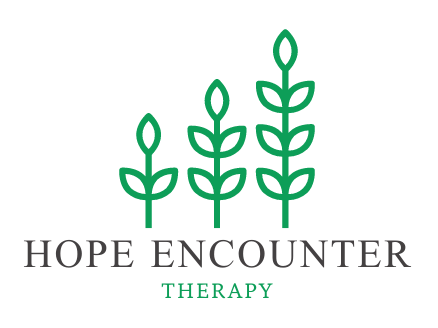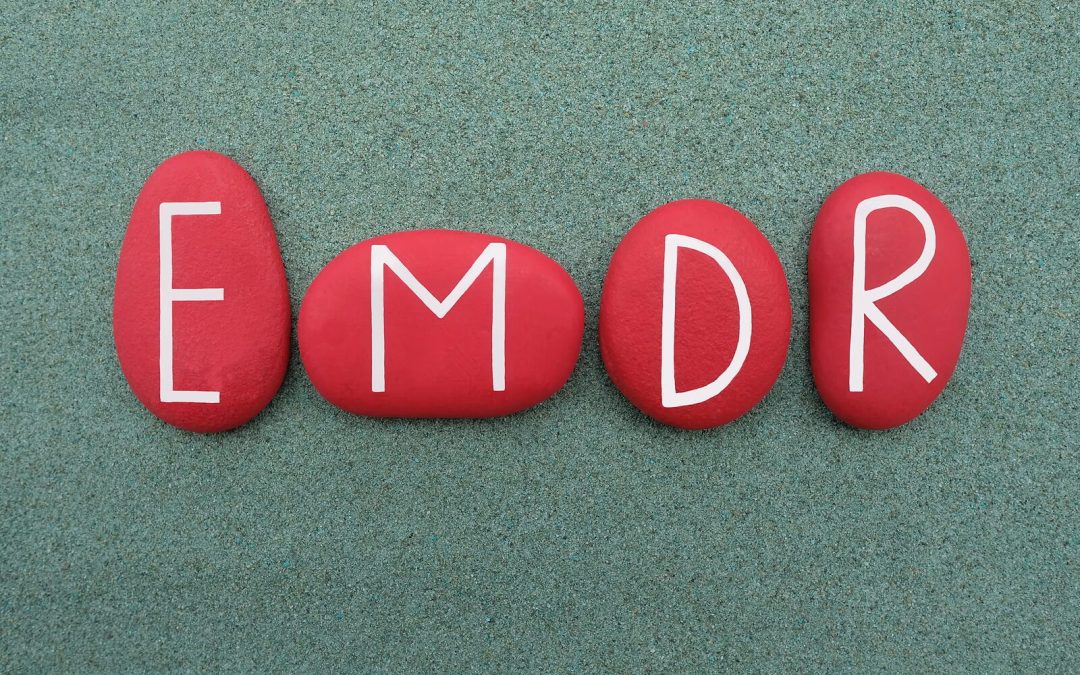In today’s fast-paced world, many individuals find themselves grappling with emotional and psychological challenges that affect their daily lives. Eye Movement Desensitization and Reprocessing (EMDR) therapy is an innovative treatment approach that has gained recognition for its effectiveness in addressing a wide range of issues, including post-traumatic stress disorder (PTSD), anxiety, and depression. In this post, we’ll explore the various issues EMDR therapy can treat, how individuals can determine if it’s the right fit for them and the pivotal role of an EMDR therapist in guiding the healing process.

Conditions That Can Benefit from EMDR Therapy
Post-Traumatic Stress Disorder (PTSD):
EMDR therapy was initially designed to treat PTSD and has consistently proven effective in this area. For individuals with PTSD, memories of traumatic events are often stored in a fragmented and emotionally overwhelming way. EMDR’s structured approach allows the brain to reprocess these memories, reducing symptoms such as flashbacks, nightmares, and heightened anxiety. Many individuals report a significant decrease in PTSD symptoms after a series of EMDR sessions, allowing them to regain control over their lives.
Anxiety Disorders:
Anxiety can manifest in various forms, including generalized anxiety disorder, panic disorder, and social anxiety disorder. EMDR therapy can help individuals pinpoint the root causes of their anxiety, often linked to past experiences or unresolved emotional distress. Through the process of reprocessing distressing memories and beliefs, clients may experience a reduction in the frequency and intensity of their anxiety symptoms. As a result, they gain better control over anxious thoughts and behaviors.
Depression:
Depression is often intertwined with unresolved trauma and negative self-beliefs. EMDR therapy can be a powerful tool in addressing the underlying issues that contribute to depressive symptoms. By processing past traumas and unhelpful emotional patterns, individuals may experience improvements in mood, self-esteem, and overall mental health. The reprocessing of painful memories allows for a healthier emotional framework, reducing the pervasive feelings of sadness and hopelessness associated with depression.
Other Conditions:
Beyond PTSD, anxiety, and depression, EMDR therapy has shown promise in treating other issues such as phobias, grief and loss, chronic pain, and even certain behavioral addictions. Some individuals benefit from EMDR when dealing with the emotional aftermath of stressful life events, like divorce or significant personal loss. The therapy’s focus on processing unintegrated emotional memories means that it can be applied in diverse clinical situations, making it a versatile tool in mental health treatment.

Is EMDR Therapy Right for You?
Determining whether EMDR therapy is the right fit involves understanding your personal history, current symptoms, and treatment goals. Here are some steps to help you evaluate if EMDR could be beneficial:
- Self-Reflection:
Consider the nature of your struggles. If you have a history of trauma—whether it be a single event or prolonged exposure—or if you notice that past painful experiences are impacting your current emotional state, EMDR might be a suitable option. Reflect on whether your symptoms align with conditions such as PTSD, anxiety, or depression.
- Research and Education:
Take some time to learn about EMDR therapy. Numerous reputable sources provide insights into how EMDR works and its effectiveness. Understanding the treatment process can help you feel more comfortable with the idea of engaging in this type of therapy.
- Consult with us at Hope Encounter Therapy:
An initial free 15-minute consultation with one of our licensed mental health professionals is a critical step. They can assess your situation, discuss your treatment history, and explain how EMDR might fit into your overall treatment plan. This is also an opportunity to ask questions and voice any concerns you may have about the process.
How EMDR Therapists Guide The EMDR Process
A skilled EMDR therapist is essential to the success of the treatment. Here’s how they guide the process:
1. Assessment and Treatment Planning:
Our therapist begins by conducting a thorough assessment of your mental health history and current symptoms. This helps in formulating a tailored treatment plan that addresses your specific needs. The therapist’s expertise is crucial in identifying the traumatic memories or distressing events that may be contributing to your symptoms.
2. Creating a Safe Environment:
EMDR sessions require a safe, supportive environment where you feel comfortable sharing your experiences. Our EMDR therapists will work to build trust and ensure that you feel secure throughout the process. This includes teaching you grounding techniques and coping strategies to manage any distress that may arise during therapy.
3. Guiding the Bilateral Stimulation:
During sessions, your therapist will guide you through the bilateral stimulation process. This involves directing your eye movements or providing other forms of bilateral sensory input while you focus on specific traumatic memories. The therapist’s role is to help you process these memories gradually and safely.
4. Monitoring Progress:
As EMDR therapists we continuously monitor your progress and adjust the treatment plan as needed. This personalized approach ensures that the therapy remains effective and that you are moving toward your healing goals. The therapist also helps you integrate the insights gained during sessions into your everyday life.
Finding Hope and Healing With EMDR Therapy
EMDR therapy offers hope to individuals struggling with a range of issues, from PTSD and anxiety to depression and beyond. By addressing the emotional roots of these conditions and facilitating the reprocessing of traumatic memories, EMDR can pave the way for lasting healing and improved mental health. If you’re considering EMDR therapy, start by reflecting on your experiences, doing your research, and consulting with a trusted mental health professional. Our experienced EMDR therapists at Hope Encounter Therapy can be your guide on this transformative journey, helping you reclaim control over your life and move toward a brighter, more balanced future.

Begin Healing With The Help of EMDR Therapy in Raleigh, NC
EMDR therapy can help you confront the emotional roots of PTSD, anxiety, and depression, guiding you toward lasting healing. At Hope Encounter Therapy, our compassionate therapists are dedicated to supporting you on your journey to improved mental health and well-being. Discover how EMDR therapy can empower you to reclaim control over your life and find hope again. Follow these three simple steps to get started:
- Contact us for a free consultation.
- Meet with one of our skilled EMDR therapists.
- Start improving your mental health and well-being!
Additional Services Offered at Hope Encounter Therapy
Hope Encounter Therapy is committed to guiding individuals and couples through their healing and growth journeys. While EMDR therapy is a key approach we offer, we recognize that each person’s path is different. That’s why we also provide Somatic Experiencing, Cognitive Processing Therapy (CPT), and Narrative Therapy to create tailored support. Our Individual Therapy services also emphasize trauma recovery. Visit our blog for helpful tips, insights, and mental health resources.


